How Skip Bins Have Revolutionised Waste Disposal in Melbourne AUS?
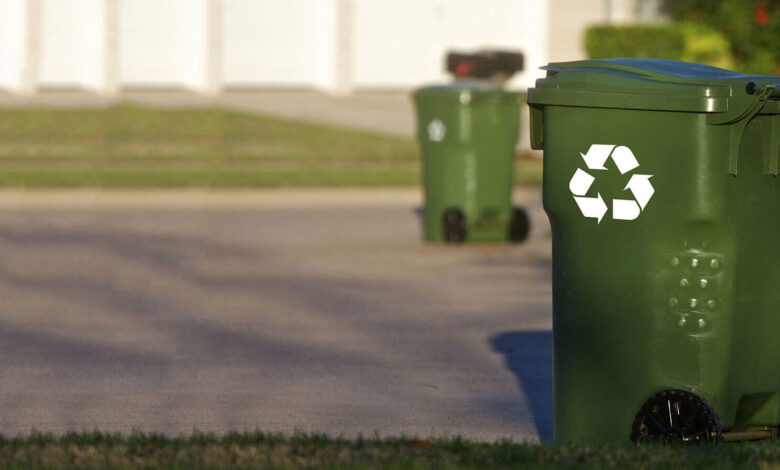
Modern life is unarguably very convenient thanks to the many innovations which make our lives simpler and easier but it can also be wasteful – most households and businesses in Melbourne produce a huge amount of waste on a regular basis.
Fast food wrappers, cheap fashion, packaging from food and electronics in addition to food waste, are all thrown away in huge amounts on a daily basis.
Opportunities for recycling are however easy to find and education surrounding recycling is easy to access. Most packaging today includes information as to how it can be recycled and the use of single-use plastics is decreasing across the country.
Whilst all this is great news, there’s still a lot of work to be done. Let’s look at waste in Melbourne and how it’s managed.
What is waste?
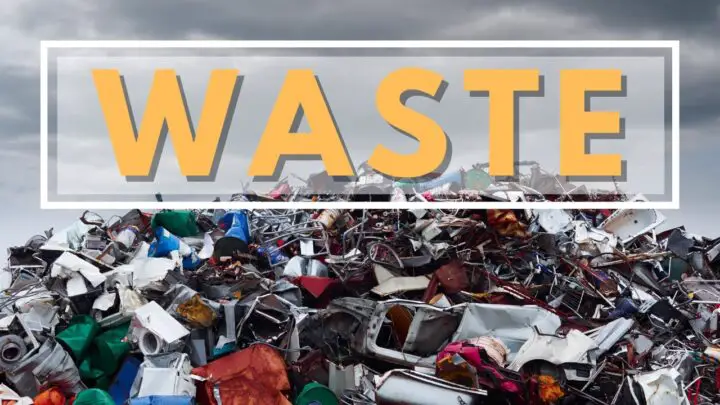
Waste is any material left over or no longer being used – waste can be organic or man-made.
Some materials are thrown into garbage by mistake – people may not realise they could be recycled and reused. The fact is that anything which could be recycled is not actually rubbish at all but a valuable resource which when dealt with correctly, can contribute towards reducing landfill usage and wasted energy from the over-production of paper and plastics in particular.
Here are some fast facts for you:
• Melbourne produces more than 907,537 tonnes of food waste on a yearly basis
• The City of Melbourne’s residential dwelling entitlement per week is 120 litres of garbage including recycling and organics
• Victorians generate more than 12 million tonnes of waste every year
Categorising waste
It can be helpful to separate waste into different categories according to the source.
There are 3 common waste sources which are as follows –
• Municipal solid waste (waste from ordinary households and public places or council operations)
• Commercial and industrial waste (from factories, retail, wholesale and service industries like hospitals)
• Construction and demolition waste (from construction/building projects and demolition)
How is waste managed in Melbourne?
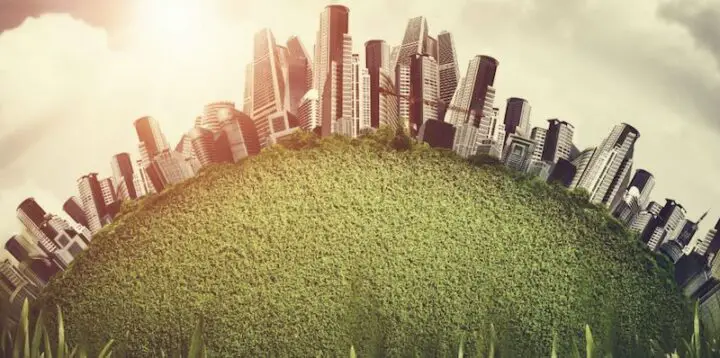
There are various approaches to the management Melbourne’s waste. The chosen approach largely depends on the type of waste and where it has been produced.
In commercial organisations and ordinary homes alike, the most preferential tactic is to focus on reducing waste, reusing items and recycling before it’s necessary to dispose of anything.
Disposing of rubbish is sometimes expensive, time-consuming and potentially bad for the environment.
The rubbish which isn’t dealt with in the most preferential fashion (reused or recycled) must be taken somewhere though – so where is that? What happens to rubbish once it’s removed?
Skip bins in Melbourne
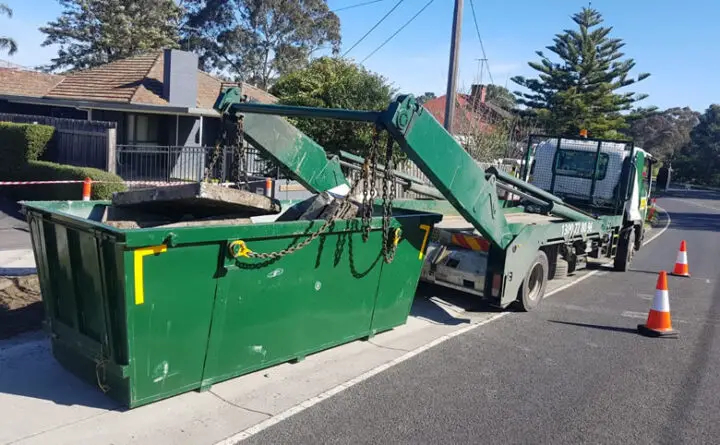
The use of skip bins in Melbourne is very popular for both business and homeowners alike. Skips are convenient, affordable and can be used by just about anyone who chooses to use them. Our choice of provider who is cheap and reliable is Skip Bin Finder.
No special liscence or permit is needed for skip bin hire in Melbourne unless you plan to park the skip on public land.
Melbourne skip hire services is often the most sensible option when people are faced with more waste than a local council collection can deal with.
This might be because of home renovation, house clearances or for businesses, a regular production of waste which is just too much for a council to manage.
Hiring Time
There is a difference between Melbourne skip bin providers of how long you can have the bin.
The average hire time is about 3 – 10 days. This is confirmed when you are ordering, so then you’ll know exactly how long you have. Before you make your booking, you’ll have to calculate how many days you need the skip bin depending on the size of waste which you have. Planning will help save time or more future orders.
Bin Size
The bin size you get will largely depend on the amount of waste and the availability.
They start from a 2 cubic meter and go through to a 35 cubic meter.
Please Note: The sizes can slightly vary between provider because there is no official standard.
Here is a guide for the dimensions:
2 Cubic – Length 1.8m, Width 1.5m, Height 0.9m
3 Cubic – Length 2.5m, Width 1.5m, Height 0.9m
4 Cubic – Length 2.5m, Width 1.5m, Height 1.2m
6 Cubic – Length 3.6m, Width 1.5m, Height 1.2m
7 Cubic – Length 4.0m, Width 1.5m, Height 1.3m
8 Cubic – Length 3.7m, Width 1.5m, Height 1.6m
9 Cubic – Length 3.9m, Width 1.6m, Height 1.5m
15 Cubic – Length 5.0m, Width 2.2m, Height 1.4m
30 Cubic – Length 7.0m, Width 2.2m, Height 2.0m
Where does the rubbish from skip bins go to?
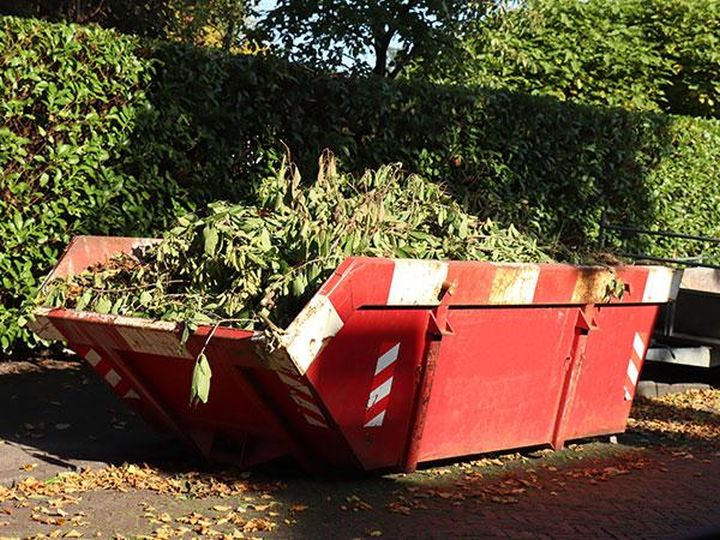
Firstly, the waste is taken to a sorting plant where it is separated into recyclables and non-recyclables.
Recyclable materials are sent to begin the process of being repurposed.
Any other waste needs to be sent to landfill.
For rubbish from ordinary council bins, it’s pretty much the same story – if it’s not in the recycling or organics, then it’s going to landfill.
Why is landfill bad?
Landfills in Victoria have been improved in recent years though they’re still not ideal.
In the past, they were simply holes in the ground into which everything was tipped. This lack of care resulted in not only pollution of the soil and atmosphere but also had a bad effect on the planet vial greenhouse gases.
Now, they are more regulated and they are also lined – usually with a thick layer of clay and a plastic membrane; they are capped to stop gases leaking and also have special systems in place for the collection of water which has come into contact with waste so that it does not leak into the water table.
However, all this costs a lot of time, energy and money to manage and by far the best way to reduced landfill is through recycling and reusing.
Skip Services in Melbourne offer peace of mind

Convenient for both householders and businesses or organisations alike, skip bins answer all the issues at hand when it comes to waste disposal.
• Convenient
• Affordable
• Environmentally friendly
• Safe
No matter how much we reduce, reuse and recycle, there will still be a surplus of waste in any large city. The safe and environmentally friendly handling of it is what matters next to the good habits mentioned above.
Skip bins can be used for almost all waste types although dangerous materials such as asbestos, need prior arrangements in place.
When you use a skip bin, you can rest assured that you are using a service which has the environment at the forefront of every process involved.

